Conversation on 2020 Pandemic
The View from Asia
A NUS Business School & ABFER collaboration
The COVID-19 (Coronavirus) was first reported in Wuhan towards the end of Dec 2019. Fast forward, the virus has spread globally. On March 12, 2020, WHO called the situation a pandemic. China faces dismal economic performance in the first quarter of 2020 and so do many parts of Asia. The Western countries are beginning to face their version of lockdown and economic hardship.
In the latest, this pandemic has caused widespread and serious unemployment and recession in many regions. Governments around the world are coming up with intensive monetary and fiscal policies to stabilize both the financial and real sides of their respective economies. Against these backdrops, ABFER and NUS Business School (Department of Finance) collaborate to host a series of discussions for the purpose of informing the public, especially the students. Our focus will be on the Asian experience in general and Singapore experience in particular.
The discussions took place in a Zoom-meeting setting on Thursday, April 2. They were divided into three sessions as follows:
2020
Professor Joseph Cherian, Professor (Practice Track), National University of Singapore
Professor Bernard Yeung, Stephen Riady Distinguished Professor in Finance and Strategic Management, National University of Singapore and President of ABFER
This session focuses on the coronavirus, also known as COVID19, and the policy actions to contain the spreading of the virus, have created demand and supply shocks on various important Asia’s economies, disrupted global supply chains, and caused financial market downfalls. These shocks, and the virus itself, are spreading towards Europe and North America. We would like to develop an analytical understanding of the causal chains and draw useful learning from these experiences which can benefit students, academics, practitioners and policymakers.
Panelists:
Professor Qiang Fu, Academic Director, The NUS Executive MBA (Chinese) and Associate Professor, National University of Singapore
Professor Sun Bae Kim, Professor (Practice Track), National University of Singapore
Associate Professor Johan Sulaeman, Associate Professor and Dean's Chair, National University of Singapore
Professor Sumit Agarwal, Head of Department, Finance and Professor of Finance Economics and Real Estate and Low Tuck Kwong Distinguished Professor, National University of Singapore and ABFER
Moderator:
Professor Joseph Cherian, Professor (Practice Track), National University of Singapore
This session discusses that governments in Asia have rolled out intensive and high impact monetary, fiscal, and financial market policy responses to the situation. We would like to understand the nature and styles of these responses, the positive and negative effects, and draw useful learning from these experiences.
Panelists:
Professor Bert Hofman, Director (East Asian Institute) and Professor in Practice, National University of Singapore
Professor Sumit Agarwal, Head of Department, Finance and Professor of Finance Economics and Real Estate and Low Tuck Kwong Distinguished Professor, National University of Singapore and ABFER
Professor Bernard Yeung, Stephen Riady Distinguished Professor in Finance and Strategic Management, National University of Singapore and President of ABFER
Professor Sun Bae Kim, Professor (Practice Track), National University of Singapore
Moderator:
Professor Joseph Cherian, Professor (Practice Track), National University of Singapore
This session discusses: (1) the uneven allocation of the burden vis-à-vis how the lower-income and small businesses have been hit particularly hard, and (2) how does the economic fallout from the pandemic impact individuals / households in their savings and investing behavior, retirement savings, etc, given wealth and retirement savings have eroded quite a bit. Is there worse to come from the impending deleveraging of assets during the “illiquidity spiral” hitting markets currently? We shall consequently discuss the role of financial advisors, regulators, intermediaries, educators, etc., when designing advice, products, market structures and regulations given pandemic-type events.
Panelists:
Associate Professor Wenlan Qian, Associate Professor and Dean's Chair, National University of Singapore and ABFER
Assistant Professor Ben Charoenwong, Assistant Professor, National University of Singapore
Dr Weina Zhang, Senior Lecturer, National University of Singapore
Associate Professor Johan Sulaeman, Associate Professor and Dean's Chair, National University of Singapore
Professor Sumit Agarwal, Head of Department, Finance and Professor of Finance Economics and Real Estate and Low Tuck Kwong Distinguished Professor, National University of Singapore and ABFER
Moderator:
Professor Joseph Cherian, Professor (Practice Track), National University of Singapore
Updated on 20 April 2020.
Speakers
-
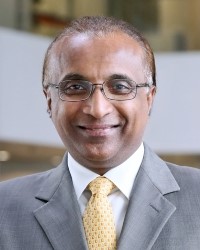
Professor Joseph Cherian (Moderator)
Practice Professor of Finance, National University of Singapore
Joseph Cherian is Practice Professor of Finance and was the Founding Director of the Centre for Asset Management Research & Investments (CAMRI) at NUS Business School, where he also serves on the School's Executive Education Board. He was formerly an Executive-in-Residence at Cornell University’s Johnson Graduate School of Management, where he served a two-term member of the Johnson Dean’s Advisory Council and is currently an Emeritus Member.
Prior to that, Joe was Managing Director, Global Head, and CIO of the Quantitative Strategies Group within Credit Suisse Alternative Investments in New York, where he had direct responsibility for over US$67 billion in client assets managed to a quantitative discipline. While at Credit Suisse, Joe also served on the Global Executive Committee and various senior management, investments, and risk committees of the Asset Management division. Joe joined Credit Suisse in 2004 from Banc of America Capital Management, also in New York, where he was Managing Director and Senior Portfolio Manager of their asset allocation funds.
Previously, he was an Associate Professor of Finance at Boston University. He has authored numerous articles for financial journals, and serves on the Scientific Advisory Boards of Nipun Capital, a boutique hedge fund based in San Francisco, and Xen Capital, a boutique digital wealth and asset manager in Singapore. Joe also serves as an Independent Non-Executive Director of Bursa Malaysia, and has or had appointments at the Ministry of Manpower's CPF Advisory Panel, the Singapore International Mediation Centre’s Panel of Technical Experts, the National Research Foundation's Early Stage Venture Fund Evaluation Panel in Singapore, and the Journal of Alternative Investments’ Editorial Board in the US.
He formerly served as a review board member of the Research Foundation of the CFA Institute. Joe holds a B.S. in Electrical Engineering from MIT, and M.S. and Ph.D. degrees in Finance from Cornell University. -
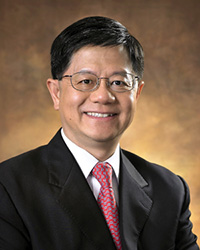
Professor Bernard Yeung
Stephen Riady Distinguished Professor in Finance and Strategic Management, National University of Singapore
President, Asian Bureau of Finance and Economic Research (ABFER)Bernard Yeung is Stephen Riady Distinguished Professor in Finance and Strategic Management at the National University of Singapore Business School. He is also the President of the Asian Bureau of Finance and Economic Research. He was Dean of NUS Business School from June 2008 to May 2019. Before joining NUS, he was the Abraham Krasnoff Professor in Global Business, Economics, and Management at New York University (NYU) Stern School of Business. He has also served as the Director of the NYU China House, the honorary co-chair of the Strategy Department of the Peking University Guanghua School of Management. From 1988 to 1999, he taught at the University of Michigan and at the University of Alberta from 1983 to 1988.
Professor Yeung has published widely in academic journals covering topics in Finance, Economics, and Strategy; his writing also appears in top-tier media publications such as The Financial Times, Economist, and The Wall Street Journal.
He won the Public Administration Silver Medal (2018) in Singapore, Irwin Outstanding Educator Award (2013) from the Academy of Management and is an elected Fellow of the Academy of International Business.
Professor Yeung was a member of the Economic Strategies Committee in Singapore (2009), a member of the Social Science Research Council (SSRC) in Singapore (2016-2018) and a member of the Financial Research Council of the Monetary Authority of Singapore (2010 -2013).
Professor Yeung sits on the 3rd Advisory Board of the Antai College of Economics and Management at Shanghai Jiao Tong University, the Advisory Council of the Economics and Management School of Wuhan University and the Advisory Committee of the Institute of Economics, Academia Sinica. Professor Yeung also serves as an independent Non-Executive Director of the Bank of China (BOC) Aviation Limited since 2016.
Professor Yeung received his Bachelor of Arts in Economics and Mathematics from the University of Western Ontario and his MBA and PhD degrees from the Graduate School of Business at the University of Chicago. -

Professor Andrew Kenan Rose
Dean of NUS Business School and Distinguished Professor of Finance, National University of Singapore
Andrew Rose has been serving as Dean and distinguished professor of the National University of Singapore's Business School from June 1, 2019.
Andrew K. Rose is B.T. Rocca Jr. Professor Emeritus of International Business in the Economic Analysis and Policy Group, Haas School of Business at the University of California, Berkeley. He is a Research Associate of the National Bureau of Economic Research (based in Cambridge, MA), a Research Fellow of the Centre for Economic Policy Research (based in London, England), and a Senior Fellow of the Asian Bureau of Finance and Economic Research (based in Singapore). He received his Ph.D. from the Massachusetts Institute of Technology, his M.Phil. from Nuffield College, University of Oxford, and his B.A. from Trinity College, University of Toronto.
Rose has published over one hundred and fifty papers including, over ninety articles in refereed economics journals such as the American Economic Review, the Quarterly Journal of Economics, the Review of Economic Studies, and the Journal of Finance. His research addresses issues in international trade, finance, and macroeconomics, and has received more than 45,000 citations. His teaching is in the areas of international macroeconomics; he has won two teaching awards.
He served as Berkeley-Haas Associate Dean for Academic Affairs and Chair of the Faculty 2010-2016, and was the managing editor of The Journal of International Economics 1995-2001. He was the founding director of the Clausen Center for International Business and Policy at Haas and the Risk Management Institute at the National University of Singapore. He has organized over fifty academic conferences.
Rose is interested in the theory and practice of economic policy; most of his work is applied and driven by "real world" international phenomena. A citizen of three countries, he has worked on six continents and at a number of international economic agencies, including: the International Monetary Fund, the World Bank, and the Asian Development Bank. He has also worked at a number of national agencies, including: the US Department of Treasury, HM Treasury (UK), the Canadian Department of Finance; and the central banks of: Australia, Barbados, Canada, England, Europe, Hong Kong, Israel, Italy, Japan, Netherlands, New Zealand, Singapore, Spain, and the United States. He has visited a number of other universities, including Cape Town, EUI, FUB, INSEAD, Keio, London School of Economics, Melbourne, NUS, Princeton, SHUFE, SMU, Stockholm, Tel Aviv, Tsinghua, ULB, and Victoria. -
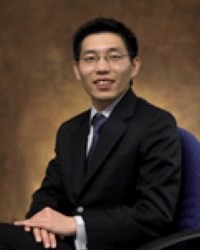
Professor Qiang Fu
Academic Director, The NUS Executive MBA (Chinese) and Associate Professor, National University of Singapore
Qiang Fu is an economist. He graduated from Guanghua School of Management, Peking University in 1998. He pursued his graduate study of economics at Indiana University, Bloomington from 2000 to 2005, and obtained his Ph.D. in economics.
Qiang joined NUS Business School, National University in 2005 for an academic career. As an applied game theorist, his research focuses on the economics of contests and tournaments and organizational economics.
Qiang offers a broad array of courses at NUS, ranging from Managerial Economics for MBA, Game Theoretical Modelling for PhD, to Macro economics and international finance for EMBA. -
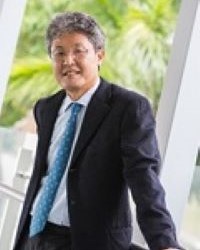
Professor Sun Bae Kim
Professor of Strategy and Policy (Practice Track), National University of Singapore
Sun Bae Kim is currently Professor (Practice) at the NUS Business School, where he teaches macroeconomics and international finance. Prior to that, he was managing director and Chief Asia Economist at Goldman Sachs. His team of economists in Hong Kong, Beijing, Singapore and Mumbai became a leading voice in Asian macroeconomic analysis. Prior to joining Goldman Sachs in 1994, Sun Bae was an economist at the Federal Reserve Bank of San Francisco, where he provided the Bank’s management monetary policy analysis with special focus on Pacific Basin economies. Sun Bae Kim received his Ph.D. in economics from the University of Toronto and was a Japanese-government sponsored research fellow at the Institute of Economic Research, Hitotsubashi University, Tokyo, from 1983 to 1987. Sun Bae is fluent in French, Japanese and Korean.

Associate Professor Johan Sulaeman
Academic Director, NUS MSc in Finance, and Dean's Chair, National University of Singapore
Johan Sulaeman is a Dean’s Chair and an Associate Professor in the Department of Finance at the NUS Business School. He is currently the Academic Director of the NUS MSc (Finance) Programme. He recently served as the Research Director of the Centre for Asset Management Research & Investments (CAMRI). He obtained his PhD in Finance from University of Texas at Austin (McCombs). He received his Masters of Financial Engineering (MFE) from the Haas School at the University of California, Berkeley, and his BSE in Computer Engineering from the University of Michigan.
He teaches in various educational programs, including executive education, in courses involving portfolio theory, equity, fixed income assets, options, futures, investment strategies, and risk management. His current research interests focus on the effects of geographic factors on various economic outcomes. He also works on research questions related to the effects of ownership structure on corporate decisions, and the role of various economic agents in disturbing and maintaining market efficiency.
His research appears in top economics and business journals, including the American Economic Review, Journal of Finance, Journal of Financial Economics, Review of Financial Studies, and Management Science. His papers have also been presented at leading conferences, including the American Finance Association and Western Finance Association annual meetings, and the NBER Summer Institute.
Professor Sumit Agarwal
Professor of Finance, Economics and Real Estate, Head of Department, Finance and Low Tuck Kwong Distinguished Professor, National University of Singapore
Sumit Agarwal is the Low Tuck Kwong Professor at the School of Business and Professor in the departments of Economics, Finance and Real Estate at the National University of Singapore. Previously, he held positions as a Professor of Finance at Georgetown University, senior financial economist in the research department at the Federal Reserve Bank of Chicago and a senior vice president and credit risk management executive in the Small Business Risk Solutions Group of Bank of America.
Dr. Agarwal's research interests include issues relating to financial institutions, household finance, behavioral finance, international finance, real estate markets, urban economics and capital markets. He has published over eighty research articles in journals like the American Economic Review, Quarterly Journal of Economics, Journal of Political Economy, Journal of Finance, Journal of Financial Economics, Review of Financial Studies, Management Science, Journal of Financial Intermediation, Journal of Money, Credit, and Banking among others. Additionally, he has co-written a book titled Kiasunomics and co-edited a collected volume on Household Credit Usage: Personal Debt and Mortgages.
He is the co-editor of Real Estate Economics and an association editor at Management Science and Journal of Financial Services Research. He writes regular op-ed’s in the Straits Times and Forbes and is featured on various media outlets like the BBC, CNBC, and Fox on issues relating to finance, banking, and real estate markets. Sumit’s research is widely cited in leading newspapers and magazines like the Wall Street Journal, The New York Times, The Economist, and the U.S Presidents Report to Congress. He also runs a blog on household financial decision making called Smart Finance.
Dr. Agarwal has won various prestigious awards like the Distinguished Alumni Achievement Award at the University of Wisconsin – Milwaukee, Outstanding Researcher Award at the National University of Singapore, the Paul Samuelson TIAA-CREF certificate of excellence, the Terker Family Prizes in Investment Research Award from the Wharton School of Business, the Glucksman Institute Research Award from New York University and grants from the Russell Sage Foundation and the NBER/Sloan Foundation.
Dr. Agarwal has been invited to present his research at many renowned universities such Columbia University, Northwestern University, University of California Berkeley, Johns Hopkins, Wisconsin, Minnesota, Maryland, as well as institutions and central banks namely the IMF, World Bank, European Central Bank, European Union, Dutch Central Bank, Riksbank, OCC, and the Federal Reserve Banks of Chicago, San Francisco, Atlanta, Boston, New York, and Philadelphia. He has consulted with the World Bank, Federal Deposit Insurance Corporation, OCC, the Reserve Bank of India and Bank of America.
He has also served as an adjunct professor and a scholar at the finance department at George Washington University, DePaul University, the Indian School of Business, HKUST, BIS and the World Bank. Agarwal received a Ph.D. in economics from the University of Wisconsin-Milwaukee.
Professor Bert Hofman
Director, East Asian Institute
Professor in Practice, Lee Kuan Yew School of Public Policy, National University of SingaporeBert Hofman, a Dutch national, is the director of the East Asian Institute at NUS and Professor of Practice at the Lee Kuan Yew School. Before joining NUS, he has been working with the World Bank for 27 years, 22 of which in Asia, and 12 of which on China. Mr. Hofman was the World Bank Country Director for China 2014-2019, the country economist 2004-2008, and the Chief Economist for the World Bank in the East Asia and Pacific region 2011-2014. He also worked on Indonesia, the Philippines, Korea and Mongolia. Before coming to the World Bank, Mr. Hofman worked at the Kiel Institute of World Economics, The OECD and NMB Bank (Now ING). Mr. Hofman has extensive experience in advising governments around the region on a wide range of development issues, and he has published on fiscal policy, debt issues, and China’s and Indonesia’s recent economic history.

Associate Professor Wenlan Qian
Associate Professor of Finance and Dean’s Chair, National University of Singapore
Wenlan Qian is Associate Professor and Dean's Chair in the Department of Finance at the NUS Business School, and Deputy Director of Research at the Institute of Real Estate Studies at the National University of Singapore. She is fellow of the Asian Bureau of Finance and Economics Research and the Homer Hoyt Weimer School of Advanced Studies in Real Estate and Land Economics. Currently, Wenlan Qian is editor of Real Estate Economics, a board member of the American Real Estate and Urban Economics Association, and associate editor of Financial Management.
Wenlan Qian's main research interests are household finance, real estate, digitization and FinTech, short sellers, financial intermediaries. She is the recipient of multiple prestigious external grants, including NBER Household Finance/Sloan Foundation Research Grant, National Natural Science Foundation of China, and Real Estate Research Institute Research Grant. Wenlan Qian's work also won the best paper awards at leading international conferences in finance and real estate, such as the Society of Financial Studies Cavalcade conference and the AREUEA international meeting. Her research is published at top academic journals such as American Economic Review, Journal of Financial Economics, Review of Financial Studies, Review of Economics and Statistics, Management Science, Journal of Financial and Quantitative Analysis, Real Estate Economics, and Review of Finance.
Wenlan Qian holds a PhD in Business Administration from the Haas School of Business, University of California, Berkeley.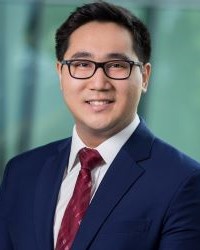
Assistant Professor Ben Charoenwong
Assistant Professor in Finance, National University of Singapore
Ben Charoenwong is an Assistant Professor in Finance at the National University of Singapore Business School.His research includes studying the interaction of supply chain and financial leverage decisions, pricing the voting component of common stock, and the regulation of investment advisers.
Ben completed his PhD in Finance at the University of Chicago Booth School of Business. Before that, he graduated from the University of Michigan - Ann Arbor in 2012 with a Bachelor of Science in Honors Economics, Honors Statistics, and Financial Mathematics with Highest Distinction.
Senior Lecturer Weina Zhang
Senior Lecturer of Finance, National University of Singapore
Weina Zhang is the Senior Lecturer of Finance at the National University of Singapore (NUS) Business School. She obtained her Master of Science and Ph.D. in Finance from Kellogg School of Management at the Northwestern University, USA. She has taught various courses such as Investment Analysis, Corporate Finance, International Financial Management, and Research Methods in Finance etc. Prior to her academic life, she also worked as research associate at Chase Manhattan Bank in the field of Asian fixed income markets. Her current research focuses on fixed income markets, policy risk, asset pricing and investment. She examines the pricing and informational efficiency in various financial markets and explores the pricing and economic impact of government policies on financial instruments in emerging economies. She also examines how socially responsible actions of corporates are priced in international financial markets. Her papers have been published in many leading finance and economics journals. She has also published dozens of textbooks and teaching cases. She serves as the reviewer for many premier finance and economics international conferences, academic journals and research grants. She is a recipient of several best paper awards.
- 1
